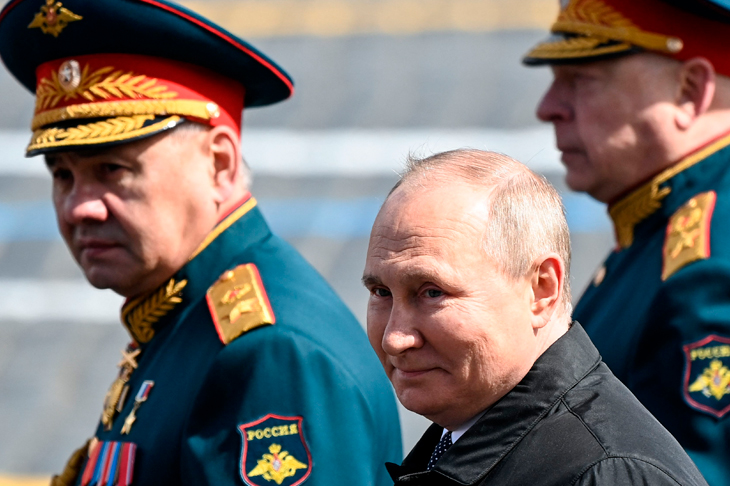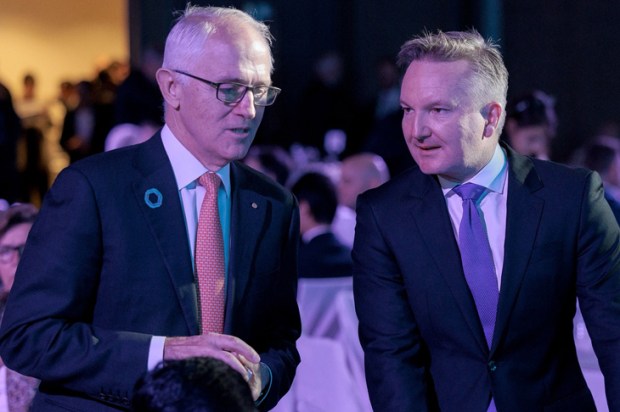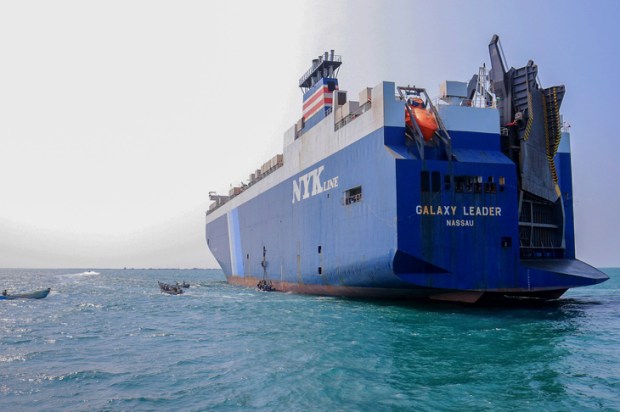One of those supposedly immutable laws of war is that you do not mess with Russia. Napoleon learned this in 1812. He invaded with 450,000 men, captured Moscow, but was eventually repelled, limping out with little more than 50,000 men ravaged by hellish combat, mad with hunger and rife with disease. Victory over Hitler, who came with the largest and most devastating fighting force in history, then established Russian manifest destiny and a belief in Russian invincibility. Indeed, in the Russian consciousness, the two victories, though 129 years apart, have become twinned. Together, they are held out as proof of a righteous Russia that protects the world from imperialism and Nazism.
Without question the Soviet Union gave more than any other nation in the fight against Nazism. 20 million Soviet citizens fell. Nazism would not have been defeated without the character of individual officers and generals, Marshall Zhukov above all, or of millions of individual acts of valour and sacrifice by ordinary Soviet citizens. But it is equally the case that the Red Army prevailed not because of the Soviet leadership but in spite of it.
The truth that modern Russia does not wish to confront is that tens of millions of citizens, including in this writer’s own family, died not in glory under siege or in savage hand-to-hand combat but because they were ill-prepared, often unarmed and led by clueless officers petrified that any act of daring or creativity would be interpreted as subversion and see them swiftly dispatched by the commissar at the rear.
Why was this so? Because the Soviet Union, like Imperial Russia and Putin’s Russia, was a behemoth forged and sustained through oppression, corruption and a contempt for human life. Trotsky had said, ‘we must rid ourselves once and for all of the Quaker-Papist babble about the sanctity of human life.’
Most of all, Russia, in all its iterations, has been defined by an almost comical randomness. As Russia considered whether to enter the Great War, the sanest person in the room was the mystic Rasputin who held sway over the Tsar’s wife. Rushing to the Imperial capital to warn her not to enter the war (good advice), the message never reached her after Rasputin was stabbed in the stomach by an old peasant woman as he waited to board the train. Russia did enter the war, and as peasant-conscripts fell in their millions, officers in the Tsar’s Army dismissed much-needed field doctors for failing to recruit nurses who would double as prostitutes. Just as the Revolution loomed, the interior minister went completely mad from syphilis – though this seems to have escaped notice – and sought answers by summoning the since-murdered Rasputin through seances.
The Soviet state would produce thousands of commercials for products that never existed just because it had to meet a quota on advertising expenditure. Those Soviet soldiers who were captured by the Germans and somehow survived the death marches, cannibalism and spontaneous executions, were summarily imprisoned in gulags by their own country, following their long march home.
None of this yields a well-drilled, well-motivated and well-led fighting force. All of this yields millions more dead citizens than necessary, and a national ego so fragile that any deviation from the official narrative amounts to heresy.
Delusions of greatness also produced the Soviet invasion of Finland in 1939, a by-product of the Nazi-Soviet non-aggression pact. This was literally a Soviet deal with the devil, which contained a secret protocol providing for the remaining free countries of Europe to be treated as courses on some debauched degustation menu for two of the greatest monsters in history.
In classic Soviet style, a force was deployed complete with a freshly-penned Shostakovich symphony for the victory parade through Helsinki, only for the Red Army to turn the Finnish snow, well, red, with the corpses of about half a million of its young men.
Enraged by the Finland debacle, Stalin was determined to reinvigorate his forces as world war loomed. His solution was to send a sadistic commissar named Mekhlis to the front to have the commander and some of his staff shot in front of their men, depleting the officer ranks a little further and placing greater operational command in the hands of petrified novices just as Hitler was drawing up his invasion plans. Stalin had already summarily executed thousands of accomplished officers including the exceptional Mikhail Tukhachevsky who bore the nickname, ‘Red Napoleon’.
Continuing these traditions of ruthlessness, incompetence and hubris, now Russia is attempting to decapitate another sovereign state on its borders, Ukraine. Ukraine’s provocation was to glance westward and a reluctance to join a new Soviet Union just because the old one conspired to starve some eight million Ukrainians in the enforced famine of the 1930s.
The Russian soldiers entered Ukraine equipped with parade uniforms, evidently blind to history and inebriated by their own propaganda. What was vaunted as a ‘special operation’ to pummel a few Nazi stragglers before receiving the flowers of a grateful nation, quickly turned into another hellscape of urban war. The parade uniforms have been left to the Ukrainian mud and 15,000 Russians are dead, small potatoes compared with the blood sacrifices in Finland and the Great Patriotic War, but heavy losses, nonetheless. Russia has suffered as many casualties in a hundred days as it did in a decade of war in Afghanistan. Additionally, the Russians have lost as many as twelve generals, the latest casualty ironically bearing the name of the Russian commander-in-chief who outfoxed Napoleon, Kutuzov.
Of course, the casualties of war have little touched the major cities in European Russia. Only handfuls of dead have been reported from Moscow or St. Petersburg. Soldiers from the Caucasus and the Siberian region of Buryatia, which abuts Mongolia, are staggeringly over-represented among the dead. This reflects a diabolical calculus that as long as the body bags head to far-flung regions and not the heart of power, Putin’s war can continue unimpeded.
If the Finland campaign is indeed prologue, Russia might ultimately claim some sort of victory in Ukraine and emerge with newly annexed regions. But this should not be mistaken for Russian power, nor should it deter the world in confronting Russian imperialism. Russia has always teetered, wracked by suspicion and insecurity. The truly powerful feel no need to periodically toss their own people on the pyre, only to prove the totality of devotion to an unknown cause.
Got something to add? Join the discussion and comment below.
Get 10 issues for just $10
Subscribe to The Spectator Australia today for the next 10 magazine issues, plus full online access, for just $10.
You might disagree with half of it, but you’ll enjoy reading all of it. Try your first month for free, then just $2 a week for the remainder of your first year.














Comments
Don't miss out
Join the conversation with other Spectator Australia readers. Subscribe to leave a comment.
SUBSCRIBEAlready a subscriber? Log in